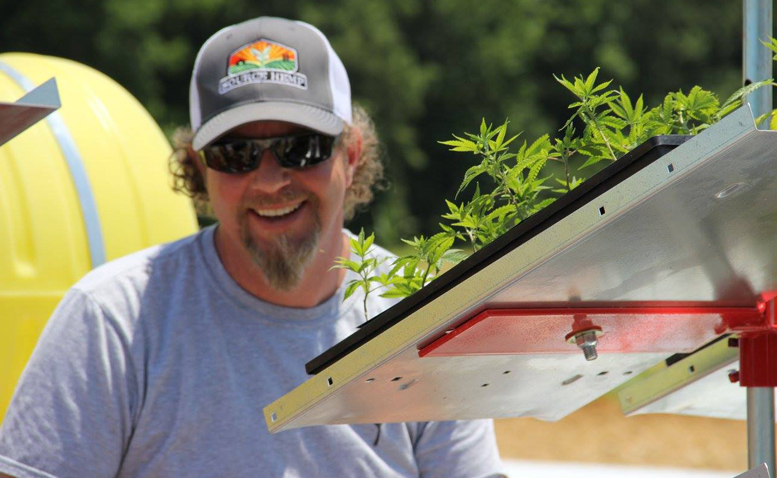Born and raised on a North Carolina (N.C.) tobacco farm, Preston Whitfield has worked on hemp initiatives at the local, state and federal levels in the United States. His efforts helped lead to passage of the 2015 North Carolina Hemp Bill, and this year he sowed the first legal hemp crop in the state since 1937. He is the founder of Source Hemp, a N.C. based firm supplying genetics, brokerage and consulting services to North Carolina hemp farmers. Whitfield also serves as Brand Ambassador-Sales for CBDRx/Functional Remedies, Boulder, Colorado. He is the Program Director for NOCO Hemp Expo, and a technical advisor to the (U.S.) National Hemp Association.
HempToday: It looks like we’re again up against a glut in the CBD markets while the legal situation in both Europe and North America are far from clear. How do you see CBD trending over the next few years?
PW: From my perspective, the ‘crack in the dam’ is too big to plug. In other words, we’ve come too far to turn back now. Too much money and energy has been expended to get us here. You can’t UNsee the benefits that hemp has made on humans, animals and the planet. Science is on our side. I see the hemp industry continuing to unfold until full legalization is achieved. Though we may face obstacles along the way, these are what will create the texture of the journey. So no matter what, the story continues.
HT: As brand ambassador for CBDRx, what’s the main message you try to communicate in the B2B context?
PW: That we’re focused on each step of our process, from proprietary hemp genetics to farming, cultivation, curing, processing and manufacturing. All this happens on our farms and in our facilities where we make our capsules, tinctures and salves – from full plant lipid infusions to CO2 extracted products.
HT: What hemp sector do you see as rising in USA after the CBD gold rush passes and that sector settles in? What will be the next sector to draw investment?
PW: The seed industry, because we have plenty of processing facilities in our traditional grain industry. It means we’re be able to create locally grown hemp seed with no additional infrastructure needed.
HT: As historically the leading U.S. tobacco producing state, North Carolina would seem to be positioned to set down a major marker for hemp. How do you assess that whole line of thinking; hemp as a replacement crop for tobacco?
PW: The tobacco industry is in constant decline. Most of the farmers in my region are or were tobacco farmers, and all wear the scars of that. They’re eager to have a crop that will make them a decent living and something they can be proud to be a part of.
In the beginning, we’re not really looking at hemp as a replacement crop for tobacco or other crops, but for its potential in rotation. Based on preliminary data, we believe that rotating hemp with other crops will improve our soils as well as the size and quality of our harvests. So we we’re tracking the changes in our fields to create solid data for the farmers in our region and beyond. We see hemp as a high-value added crop.
HT: Tell us what you’re planting in North Carolina this year, and what aspects of processing will be involved in getting the products market-ready.
PW: Because of the delays from the state in approving permits, there was a late start to the planting season, so most of what we will be producing in NC this year will for the CBD market, with a smaller yield coming in seed, and for fiber and hurd production.
HT: How do you see the local and statewide markets for hemp foods in North Carolina itself?
PW: There is a rising awareness and attention to all things hemp in North Carolina due to the newly passed laws and the fact that we’ve already got hemp already in the ground. You can buy hemp seed and related products at any health food store. So demand rises as the awareness of the product rises.
HT: As Program Director at NOCO Hemp Expo, how do you go about putting together such an extensive program? Who is foremost in your mind as you begin that process each year?
PW: I approach NOCO as a storyline, looking at it first chronologically and then add the relevant data for each year’s focus. The first day is B2B and from a programming standpoint, we talk about laws, genetics, farming, processing and business development in general. Day 2 is for the general public , so the programming is more focused around finished goods, the benefits of hemp, cooking and building, hemp fashions, and the future of hemp in people’s lives.
Meet Preston Whitfield in Poland this October at the Hemp2020 Business Summit.

